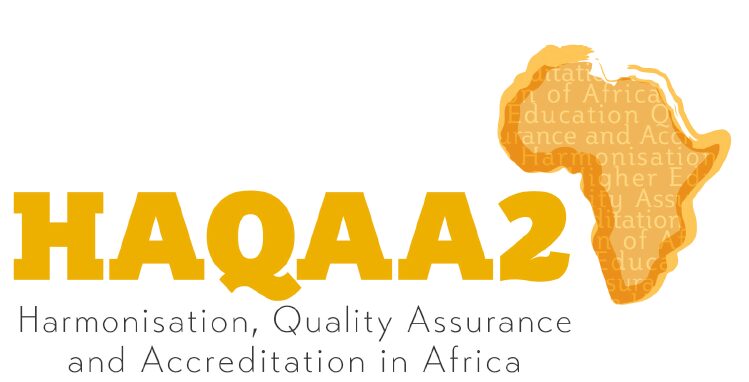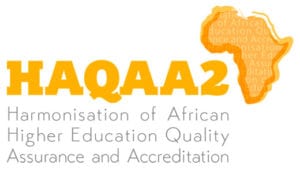General Information
The HAQAA2 consortium offered graduates of the HAQAA1 and HAQAA2 training courses on internal and external quality assurance the opportunity to apply for grants to carry out dissemination and capacity building projects to strengthen the implementation of the Pan-African Quality Assurance and Accreditation Framework (PAQAF).
The dissemination projects aimed to
- Support the dissemination and multiplication of the results of training activities across the continent.
- Encourage collaboration between all HAQAA training course graduates and link IQA and EQA professionals, as both are critical to vibrant QA systems.
This was a unique opportunity for course graduates to implement activities that facilitate the transfer and multiplication of skills and knowledge in their local context, while receiving funding and coaching from the HAQAA2 initiative.
Projects in Central Africa
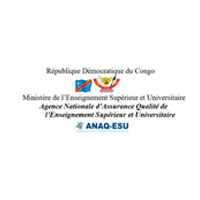
Coordinators
Emmanuel KAMBAJA MUSAMPA
Prof Georges MULUMBWA MUTAMBWA
République démocratique du Congo
Dissémination des PAQAF et de l’ASG-QA en République démocratique du Congo : Théorie, auto-évaluations institutionnelles et benchmarking
The main aim of this project is the transfer of internal and external QA knowledge and skills through the dissemination of the Pan-African Quality Assurance and Accreditation Framework (PAQAF) and African Standards and Guidelines – Quality Assurance (ASG-QA) within the higher educational landscape of the Democratic Republic of the Congo (DRC).
The project will be supported by the ANAQ-ESU (national agency for quality assurance in the higher education and university sector) with three Ambassadors, all alumni of HAQAA 1 &; 2, each of whom will coordinate an activity. This project will address a key need within the Congolese education
system. The DRC belongs to a number of quality assurance associations, in particular CAMES and SARUA, while various institutions are members of other associations as well, such as Assunicam (the association of Catholic universities and institutes of Africa and Madagascar). Moreover, each of these associations has its own quality frameworks, with the result that the DRC’s universities and
higher education institutions have a wide range of frameworks to choose from. Harmonisation of the guidelines at a pan-African level is a real need that the HAQAA addresses. Moreover, by presenting the ASG-QA at institutional but also ANAQ-level, this initiative enables institutions to self-assess while getting a perspective on how the national agency will, in turn, carry out an assessment procedure for the purposes of national accreditation. Thus, internal QA is naturally linked to external QA via the PAQAF and the ASG-QA.
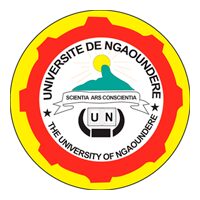
Coordinator
Prof Jean Baptiste BIKE MBAH
Cameroon
Renforcement des capacités en assurance qualité des acteurs de l’enseignement supérieur du Cameroun et du Tchad
The project ‘’Quality Assurance Capacity-Building among Higher Education Personnel in Cameroon and Chad’’ is a response to a problem recognised after observing the operations of African university establishments and institutions, as individual entities. This approach does not, however, guarantee a system of high-quality higher education in Africa.
Taking into account the fact that Cameroon and Chad have always maintained a tradition of mobility and exchange between students and teaching staff, the project aims to disseminate the knowledge acquired during the HAQAA2 IQA training to the university establishments and institutions in Chad and Cameroon.
This project therefore fits into the general context of continuous improvement in the quality and harmonisation of higher education in Africa and giving support to improve the employability and mobility of students and teachers across the continent. More specifically, it will involve:
- Fostering a culture of quality assurance within the higher education establishments and institutions of Cameroon and Chad
- Building capacity among higher education personnel with regard to the implementation of the African Standards and Guidelines – Quality Assurance (ASG-QA) and Pan-African Quality Assurance and Accreditation Framework (PAQAF) as harmonisation and accreditation tools
- Promoting the development of harmonised quality assurance mechanisms
This work will be achieved through the organisation of training and capacity-building events aimed at personnel in the higher education sector. In addition to experts, these events will be aimed at Ministry of Higher Education officials.
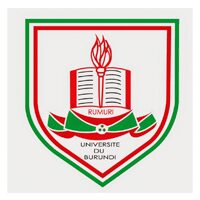
Coordinator
Prof Jean Chrysostome NDAMANISHA
Burundi
Utilisation des ASG-QA dans l’amélioration de la démarche qualité à l’Université du Burundi
The primary objective is to establish the African Standards and Guidelines – Quality Assurance (ASG-QA) within the University of Burundi. Because the standards and guidelines are new to most of those engaged in higher education at the University of Burundi, the first stage is to explain them to the heads of each faculty and department. It is for this reason that a quality assurance hub will need to be established in every faculty and institute. These will be responsible for employing the benchmarks in an internal audit. In performing their task, however, these hubs will be required to go through the deans of each faculty or institute on the one hand and the heads of department on the other. The deans and heads of masters programmes will therefore be invited so that the ASG-QA can be explained to them. The standards and guidelines will then be explained to the heads of every department at the University of Burundi. Once these benchmarks have been understood, an internal audit will be carried out by the quality assurance hubs and a report drawn up which will serve as the basis for a plan to adjust and harmonise the quality assurance mechanisms.
Overall goal: To foster understanding of the ASG-QA, harmonise them with the national minimum norms and implement them within the University of Burundi.
Specific objectives:
1) To ensure a proper understanding of the ASG-QA within the University of Burundi
2) To compare the benchmarks of the University of Burundi with the ASG-QA
3) To carry out an institutional audit of the University of Burundi on the basis of the ASG-QA
4) To harmonise the University of Burundi’s quality benchmarks with the ASG-QA.
Projects in Eastern Africa
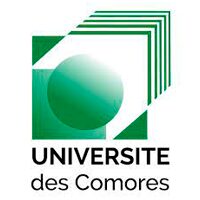
Coordinators
Dr Soule HAMIDOU
Ahmed BACAR AHMED
Comores
Mise en place d’un service d’assurance qualité à l’Université des Comores
The University of Comoros (UDC) aspires to bring about a profound transformation of the institution in order to enable it to participate fully in the development of the Union of the Comoros. Moreover, it aims to diversify its education offering in the field of science and technology, in particular through the launch of a wide range of high-quality professional training courses. With the aim of improving its system of governance, the UDC is engaging in a quality assurance programme that it is hoped will begin with the training of key figures in its various institutes, and in particular the heads of its science and technology departments.
Moreover, the implementation, at different levels, of processes, tools and instruments that will enable an improvement in quality not only remains a necessity but is also aimed at upgrading existing components; furthermore, it involves complying with the prevailing norms regarding education, research, organisation, management and evaluation. Hence the interest in creating a quality assurance department at the University of Comoros. The project will also serve to disseminate training in quality assurance harmonisation via awareness-raising sessions and courses for all those working in education.
The project goal is to train a group of UDC managers in training course quality procedures, more specifically science and technology courses, in order to form a committee of experts in the field which will then, in the very short term, be able to guide the university into a more universal approach to quality assurance.
This project will train managers who will then become active members of the UDC quality assurance board and committees.
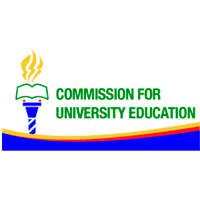
Coordinator
Dr Beatrice ODERA-KWACH
Kenya
Capacity Building of Kenyan QAA (CUE) and HEIs in the Development and Application of Quality Assurance Tools for Accreditation and Monitoring of (ODeL) Centres and Academic Programmes
The project was conceived out of an urgent need to assure quality in Open, Distance and eLearning (ODeL) academic programmes and institutions in response to the Covid-19 pandemic. The aim of the project is to build institutional capacity in Kenyan HEIs and the Commission for University Education (CUE) for self-assessment and accreditation of ODeL academic programmes and institutions. In achieving this aim, the project will endeavour to promote the ASG-QA and AQRM as tools for internal and external quality assurance of HEIs in Kenya.
The specific objectives of the project are to:
- Review the self-assessment questionnaire (SAQ) for ODeL academic programmes and institutions, to align them to the ASG-QA and AQRM;
- Develop an evaluation tool for the Self-Assessment Report (SAR) for ODeL academic programmes and institutions for use by peer reviewers/experts; and
- Train Directors of Quality Assurance (DQA) from HEIs in Kenya on the preparation of SARs and accreditation for ODeL academic programmes and institutions.
The project will develop tools for evaluation and self-assessment of ODeL academic programmes and institutions (external quality assurance) and develop competency in preparation of self-assessment reports for accreditation (internal quality assurance).
Consequently, the project will lead to improved self-assessment and reporting by HEIs and harmonization of evaluation and self-assessment tools for ODeL with the ASG-QA and AQRM. The project will entail workshops for the QAA (CUE) staff to develop and revise evaluation and self-assessment tools, and a capacity building workshop for DQA from 36, HEIs in Kenya.
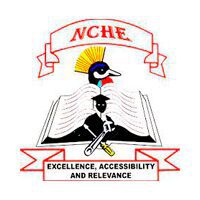
Coordinators
Dr Richard OUMA
Betty BIRABWA
Uganda
Training Quality Assurance Managers to Create Awareness and Popularise the Application of Continental Quality Assurance Framework and Standards (ASG-QA) in Ugandan Universities
Project Objectives:
- To increase the participants’ awareness, understanding, and appreciation of the objectives of the African higher education landscape specifically African Standards and Guidelines of Quality Assurance (ASG-QA) and African Quality Rating Mechanism (AQRM) in higher education
- To expose participants to both the National Quality Rating Mechanism (NQRM) and the African Quality Rating Mechanism (AQRM) inhigher education to be able to appreciate, align, harmonise and apply them
- To benchmark with one University in Uganda (Ndejje University) that participated in the initial study that operationalised the African Quality Rating Mechanism (AQRM) in higher education
- To equip participants with competencies to develop institutional reports after reflecting on the knowledge and skills gained from the awareness training workshop and the benchmarking activities
The project shall actively run for a period of 6 months and implement two training workshops. The project shall also involve a benchmarking activity at Ndejje University which is the only University that participated in HAQAA 1 project on AQRM, and also have a Policy dialogue activity between UUQAF and the National QA Regulatory Body (NCHE) on aligning the NQRM with the AQRM.
The critical areas of the project focus in terms of content shall include Introduction to the concept of QA in higher education institutions, Introduction to African Standards and Guidelines of Quality Assurance (ASG-QA)- Relevance/rationale of ASG-QA in the contemporary higher education institutions, implementation, guide institutions how the guidelines could be institutionalised in QA policy frameworks; Understanding African Quality Rating Mechanism (AQRM) in higher education, Alignment of NQRM with AQRM.
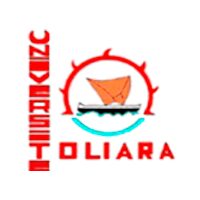
Coordinator
Prof Hanitra Sylvia ANDRIAMAMPIANINA
Eliane Vahinalahaja RAZAFINTSALAMA
Madagascar
Développement d’une culture de la qualité́ dans les Établissements d’Enseignement Supérieur (EES) de Madagascar par l’appropriation de l’ASG-QA pour la mise en place des systèmes d’accréditation et d’assurance qualité
The beneficiaries of the project “Development of a Quality Culture in Madagascar’s Higher Education Institutions through the Adoption of the ASG-QA for the Creation of Accreditation and Quality Assurance Systems”, supported by the University of Toliara, are Madagascar’s six main public universities. It will enable the dissemination of the HAQAA2 training outcomes and foster quality assurance and internationalisation, through the application of pan-African quality norms, in particular the African Standards and Guidelines – Quality Assurance (ASG-QA). It will contribute to the harmonisation of quality assurance initiatives at a national level while taking into consideration one of the responsibilities of the Ministry of Higher Education and Scientific Research, which is the accreditation of its member institutions.
The means of implementation will take into account national realities in order to allow the necessary contextualisation for the adoption of the quality assurance benchmarks by those involved. The main output of the project will be the publication of a national framework document for internal quality assurance, this being the necessary springboard for quality development and sustainability.
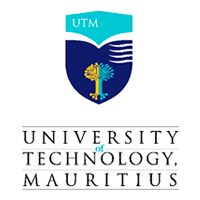
Coordinators
Venethethan DEVARAJEN
Dr Fareeda KHODABOCUS
Viswanaden PATTEN
Mauritius
Capacity-Building for a Shared Understanding of IQA Systems Based on the ASG-QA in Mauritian HEIs
A capacity building project, in the form of a 5-days workshop to be run by an expert in Quality Assurance (QA) systems from 8th to 12th August 2022 in collaboration with five local Higher Education Institutions (HEIs), namely the University of Technology, Mauritius (UTM), the University of Mauritius (UoM), the Open University of Mauritius (OUM), Université des Mascareignes (UDM) and the Mahatma Gandhi Institute (MGI).
Mauritius is in the pursuance of strengthening the Quality Assurance System of its Higher Education Sector especially at a time when facing several challenges, one being high on the agenda is the streamlining of the Internal Quality Assurance (IQA) standards for the local HEIs.
Streamlining the standards undoubtedly calls for a deep understanding of the associated requirements of each of the clauses of the standard; some of which may trigger further requirements for expert knowledge and technology transfer.
This joint project aims at:
- addressing the needs to probe further into selected African Standards and Guidelines for Quality Assurance (ASG-QA), the European Standard Guidelines (ESG) as well as international best practices of other quality assurance agencies for building skills and knowledge to enable a robust Internal Quality Assurance (IQA) systems aligned with the requirements of the External Quality Assurance (EQA) for the local context.
- linking Internal Quality Assurance (IQA) and External Quality Assurance (EQA) professionals, both are critical to vibrant Quality Assurance systems.
- implementing a capacity-building activity for stakeholders operating at different levels and functions of the Higher Education Institution.
- encouraging collaboration between all HAQAA training course graduates.
- supporting the dissemination and multiplication of the outcomes of training activities across the continent.
Projects in Northern Africa

Coordinator
Prof Amany EL-SHARIF
Egypt
ASG DASPA: Dissemination for Arabic Speaking Academics
Projects in Southern Africa
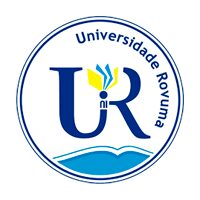
Coordinators
Dulce João NUNES LANGA
Geraldo Vernijo DEIXA
Mozambique
Construindo a Cultura de Qualidade em Universidades e Sistemas
The Project "Building a Culture of Quality in Universities and Systems" is being carried out in Mozambique under the coordination of the University of Rovuma (Uni Rovuma) and the University of Licungo (Uni Licungo). The objective is to develop a culture of quality within the Faculty, Students and Technical Administrative Staff (CTA), linked to the courses and services of the Higher Education Institutions (HEI). The project will train managers of the HEI's Quality Assurance Offices, through seminars and workshops. With the implementation of this project, the level of understanding about quality issues will be increased and QA culture is promoted within Mozambican HEIs.
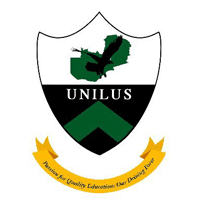
Coordinators
Oscar MWALE
Zambia
Enhancing the Capacity of Quality Assurance Officers in Colleges and Universities in Zambia
As part of HAQAA2’s activities, a training program has been implemented, targeting QA professionals in universities and HEI across the African continent. HAQAA1 and HAQAA2 training activities have generated knowledge on the PAQAF and the ASG-QA, in particular, as tools for harmonization in the HE sector. However, there is a need for these training activities to further reach quality assurance officers in colleges and universities in respective countries. Thus, through this call, the proposed training program will give an opportunity to the HAQAA Ambassadors of these courses to apply and disseminate knowledge gained for the benefit of the wider African HE community that will include quality assurance representatives in colleges and universities in Zambia. This workshop takes it from the beginning by making participants understand the functions of the Quality Assurance Departments/Unit/officers. It is usually presumed that the personnel in quality assurance know what is expected of them but many are times where the activities expected of the Quality Assurance Department are not seen and/or not performed but the higher learning institutions claim to have a Quality Assurance Department.
Therefore, through this workshop, we will provide participants with the knowledge, resources, skills, and incentives for harmonization in the HE sector. Besides, we will also bring together assurance officers or representatives from colleges and universities together, and encourage collaboration among them on quality assurance practices in their respective institutions.
The main purpose of this workshop is to disseminate and multiply the outcomes of HAQAA1 and HAQAA2 training activities to the participants and build their capacity in order to action regarding the implementation of the Pan-African Quality Assurance and Accreditation Framework (PAQAF). The workshop seeks to bring together quality assurance officers to share and learn from each other on the current activities, procedures, and policies put in place to ensure quality education and how this feeds into the Pan-African Quality Assurance and Accreditation Framework.
Projects in Western Africa
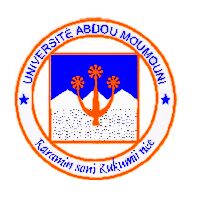
Coordinators
Haoua SEINI SABO
Dr Abdoulaye HAMADOU
Niger
Renforcement de capacités en assurance qualité des universités de Niamey et de Tahoua
The project “Building Quality Assurance Capacity at Niamey and Tahoua Universities” is an initiative of the heads of the Quality Assurance Committees of NIAMEY and TAHOUA public universities.
The aim of this project is to raise awareness of quality assurance and its requirements among the administrative and technical staff of the faculties, members of the internal quality assurance committees (IQACs), the teacher-researchers, the heads of department, the central services of the rectorate, the subject coordinators and the student representatives; to build capacity among members of the various course evaluation committees and finally to promote the adoption of the institutional evaluation framework and the course evaluation framework of the African and Malagasy Council for Higher Education (CAMES) and the African Standards and Guidelines – Quality Assurance (ASG-QA). This awareness-raising initiative will be based on the QA and ASG-QA principles and the DG/QEA and CAMES frameworks.
In order to achieve these three objectives, three workshops on different days adapted to the needs of participants across the two sites are planned. A practical subject evaluation exercise will be held at each site, followed by a debriefing session with those involved.

Coordinator
Dr Fatoumata KEITA
Dr Solomani COULIBALY
Mali
Les ASG-QA comme outil d’aide à la mise en œuvre d’une politique d’assurance qualité interne dans les IES du Mali
General objective
The general objective of this project is to develop and boost internal quality assurance skills within the Abdrahamane Baba Touré National School of Engineering (ENI-ABT) and the University of Arts and Humanities of Bamako (ULSHB) through the dissemination of the African Standards and Guidelines – Quality Assurance (ASG-QA). The aim is to raise awareness among the teaching and administrative staff, and to train them in the use of this new tool in order to contribute to the establishment of an enduring quality culture within these higher education institutions (HEIs).
Specific objectives
- To popularise the ASG-QA and encourage their use in these two higher education institutions
- To support the implementation of ENI-ABT’s internal quality assurance committee (IQAC) by leading an institutional self-assessment by this HEI
- Conducting a qualitative and quantitative inquiry into the ASG-QA and quality assurance in general within the HEIs
- To write a scientific article concerning the results of this qualitative/quantitative inquiry
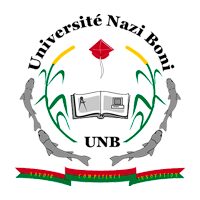
Coordinator
Dr Seydou Golo BARRO
Burkina Faso
Projet de diffusion et de renforcement des capacités dans le cadre de l’initiative HAQAA2 au Burkina Faso: “Projet DI.RE.C. HAQAA Burkina”
This quality assurance dissemination and capacity-building project, conducted by personnel within the higher education and research institutions (HERI) of Burkina Faso within the framework of the HAQAA2 initiative, comes at a time when higher education in Burkina Faso is facing growing demand from students for access to the country’s universities. Given the limited resources of Burkina Faso’s public sector, this emphatic demand favours the strong development of a private sector in higher education. Moreover, these are the very reasons that prompted the creation of a quality assurance system aimed at guaranteeing educational quality across both the public and private sectors.
The dissemination and capacity-building project “Projet DI.RE.C. HAQAA Burkina” enables support to be given to Nazi BONI University (UNB) in carrying out activities aimed at achieving the accreditation of the institution. The project’s goal is to promote the African Standards and Guidelines (ASG), to apply them in the UNB’s different evaluation contexts, to combine them with other existing frameworks with the aim of establishing a single framework and to prepare for the institutional accreditation of the university.
The activities that will enable these goals to be achieved are as follows:
- Organisation of a workshop on the adoption of the ASG by the UNB’s QA hubs;
- Organisation of workshops on the implementation of the plan for improving self-assessment divergence;
- Organisation of an awareness-raising activity for HERI officials concerning the ASG-QA and the necessity of creating a national quality assurance framework.
The project will be led by a team of four (4): a coordinator, a programme officer, a financial administrator and an office manager.
In order to bring the project to a successful conclusion, terms of reference (TOR) will be drawn up at the outset for each activity and a report will be produced after each activity. To ensure the sustainability of the project outcomes, all those concerned have been involved from initial project conception and the university’s internal quality assurance committee (IQAC) has been tasked with ensuring post-project monitoring.
Network Project
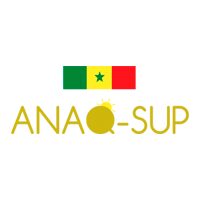
Coordinators
Abdou Lahate CISSÉ
Dr. Jeffy MUKORA
Dr. Abdallah BAGUMA
ASG-QA Dissemination Project
QA Network Project: Mapping and Dissemination of ASG-QA in Africa Implementing Body: RAFANQ, CNAQ, EAQAN
The dissemination project aimed at disseminating the ASG-QA in Africa. It was carried out by the Francophone African Network of National Quality Assurance Agencies (RAFANAQ), the East African Quality Assurance Network (EAQAN) and the National Quality Assurance Council of Mozambique (CNAQ) representing the Portuguese speaking area.
The objective of the proposed mapping methodology was to foster and support country and subregional ownership of the ASG-QA through a reflective exercise on their own quality assurance practices in the light of the ASG-QA.
To ensure that the ASG-QA will be taken up and embedded in the higher education community, a dissemination plan was developed that explains how the ASG-QA will be shared with stakeholders, relevant institutions, organisations, and individuals. To put the stakeholders in one understanding, the mapping results informed them how important the ASG-QA components to be shared within the regions identified.
The purpose of the dissemination project was:
- To raise awareness and understanding of the ASG-QA
- To enhance societal acceptance of the ASG-QA
- To effectively communicate the shared roles in implementation of the ASG-QA
- To provide mechanisms to encourage stakeholder involvement and create more buy-in from stakeholders
- To provide a mechanism for CNAQ, RAFANAQ and EAQAN to engage with key stakeholders on matters related to the ASG-QA
The dissemination project took a 5-step approach to stakeholder engagement:
- Preparation for dissemination, identification of dissemination objectives, scope and outputs
- Identification of the common methodology of the mapping exercise, analysis and report writing
- Design a dissemination strategy
- Conducting and documenting the dissemination activity
- Monitoring and Evaluation of the engagement process.
